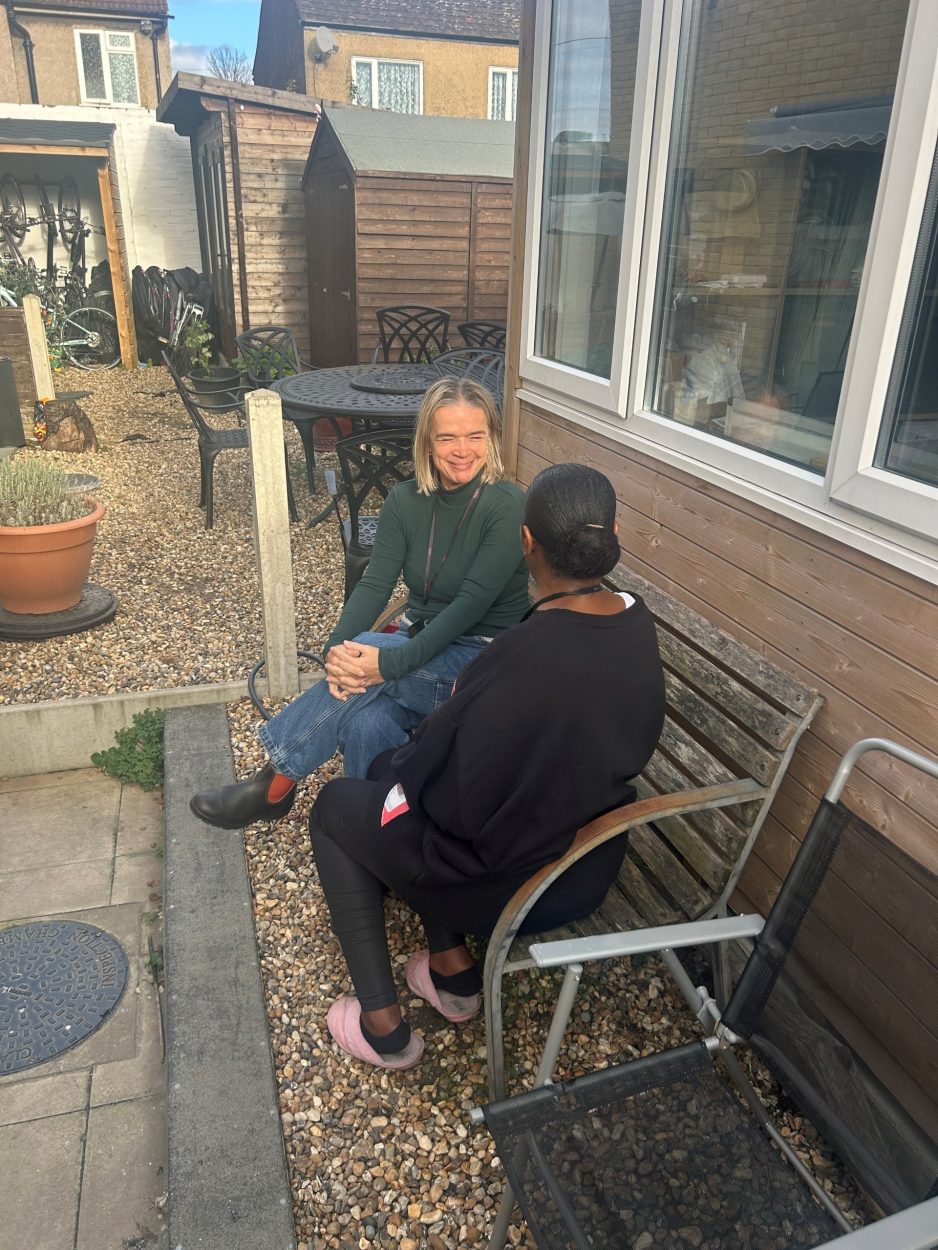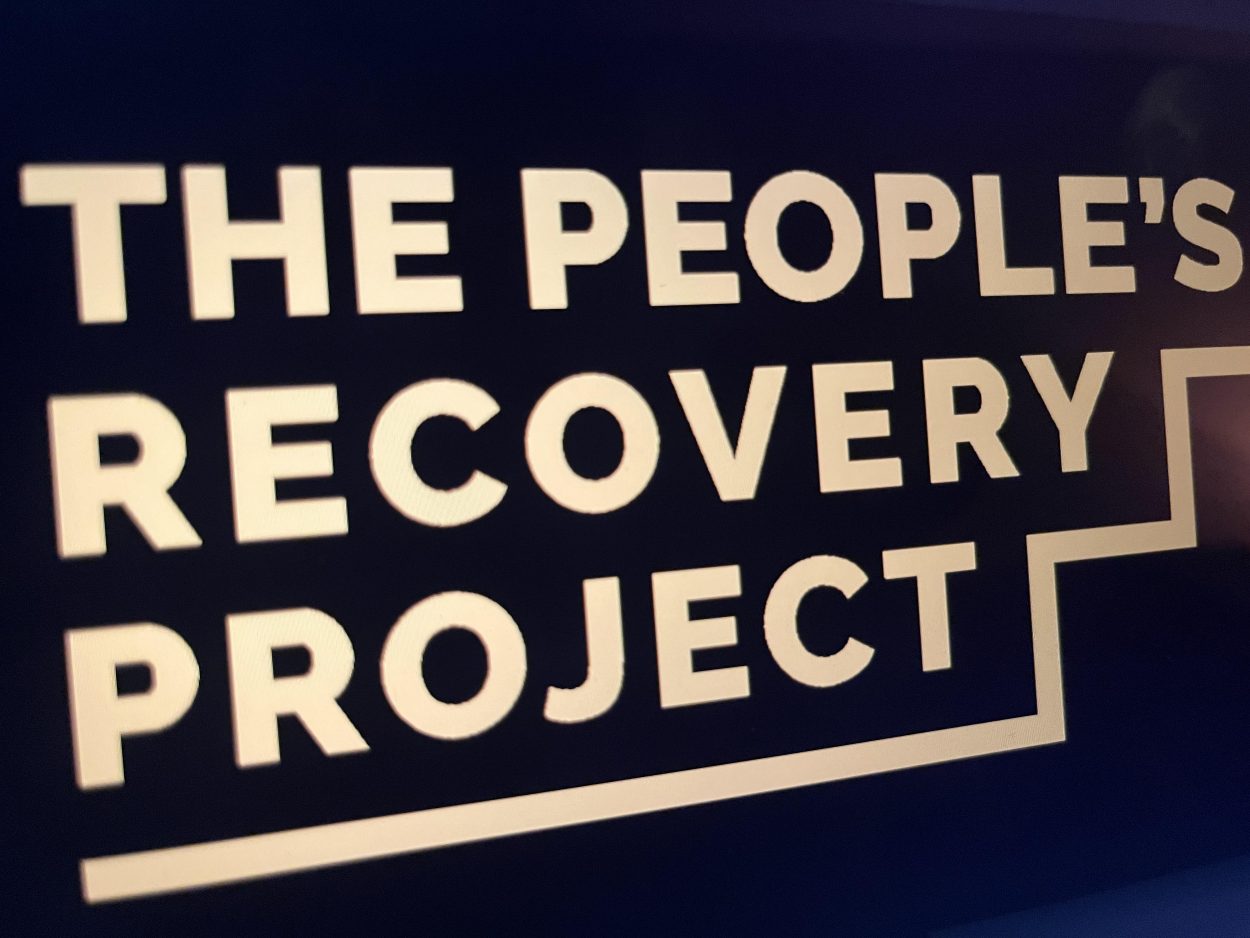About Our Grants
Funding projects
Funding projects and organisations based in London which work directly with people who are homeless
At LHF we use much of our annual income to fund projects and organisations based in London which work directly with people who are homeless. We focus our funding on:
- early-stage, higher-risk projects which require proof of concept before they can attract more mainstream funding
- projects that aid sector collaboration and consolidation
- international projects in places with little homelessness provision, which have the potential to affect systemic change.
Read our grants strategy below.
Recently, the LHF Board has agreed grant funding for the following organisations:

Treasures Foundation, £20,000
Treasures Foundation work in East London providing safe accommodation and specialist support to women with histories of drug abuse and offending. They aim to work alongside women to enable them to recover, build healthy relationships, learn new skills, reach their full potential, and go on to lead fulfilling and independent lives. Many of the team at Treasures have experienced substance abuse themselves or been in the criminal justice system.

Peoples Recovery Project, £30,000
The People’s Recovery Project (TPRP) is a new charity that seeks to build sustained recovery for people experiencing homelessness and addiction. They are looking to build an alternative pathway, remove the barriers and make it much easier for people to access the support they need.

Prisoners Abroad Resettlement Service, £120,000 over three years
Prisoners Abroad is a human rights and welfare charity, which for over 45 years has supported vulnerable people affected by overseas imprisonment. Their Resettlement Service plays an absolutely crucial role in reducing homelessness in London and helping people to rebuild a positive life after overseas imprisonment across the UK.
In addition, LHF also currently funds the following projects:
- Margins Project
- Depaul International
- London Network of Nurses and Midwives Homelessness Group
- Prison Advice and Care Trust
- Single Homeless Project
- Boost Up
- Prisoners Abroad
- Treasures Foundation
- Change Please
- People’s Recovery Project
- Marylebone Project
Note that our grants are restricted to London based agencies.
Please complete the form below and we will get back to you as soon as possible.
Apply for a grant
Supporting overseas
LHF has always had a strong affinity with homelessness agencies across Europe
Separate to our primary grants programme London Housing Foundation are also members of FEANTSA, the European Federation of National Organisations Working with the Homeless. In particular LHF has a strong partnership with DePaul International and most recently supported aspects of their work in Ukraine.

Our grants strategy
The majority of the LHF’s income is used to fund our core and committed projects such as the annual London Homelessness Awards and our Leadership and Management Programme with LSBU with its associated international travel bursaries.
We also have a medium-term commitment to fund projects in Europe as part of our international learning programme.
Every year we also reserve part of our resources to allow us to be able to respond to grant requests that meet our criteria subject of course to our annual budget ceiling. Very occasionally we commission research. We do not think of ourselves as a campaigning organisation – we hope that the results of our programmes and projects can speak for themselves.
Besides our ‘core’ programmes outlined above the LHF makes grants directly to agencies. We have two current areas of interest where the Board likes to consider making responsive grants.
SECTOR COLLABORATION AND CONSOLIDATION
There are a large number of agencies delivering services to homeless people in London and from time-to-time new service providers arrive. There can be advantages to this diversity, but LHF believes there can also be benefits to agencies exploring the added value that can be gained through collaboration and consolidation.
We are interested in assisting those London homelessness agencies that wish to develop formal partnerships, or merge their activities, with other organisations in search of greater efficiencies and improved viability and where we can see a direct link to increased outcomes for homeless people.
In this area of work our support usually takes the form of providing the agency or agencies with a number of days of one of our consultants’ time to assist with the production of a preliminary option appraisal.
Support after that stage will depend on the results of that option appraisal. We understand that requests for this type of support can often develop at relatively short notice and so the Board has delegated authority to the Executive Chair to decide on initial grants for this type of work.
PROOF OF CONCEPT AND EARLY-STAGE DEVELOPMENT
The second area of LHF grant making relates to assisting agencies to develop early ‘proofs of concept’ for innovative services or products that are new to the sector.
These products or services should, once demonstrated, have strong potential to be supported after a relatively short period of time by statutory or independent funders or be able to demonstrate that they can achieve financial viability. The sort of timescale we have in mind is to move from ‘idea’ through proof of concept to a service that is either internally viable or supported by external funders within 12–18 months.
Some of these initiatives come to us via the London Homelessness Awards where we have been sufficiently impressed to consider making a further investment and some arrive through opportunities that present themselves via other routes such as our website. In order to build on our investment in sector skills, we are particularly interested in initiatives that come from agencies that have participated in the LHF/LSBU Leadership and Management Programme.
The normal maximum grant we would expect to make under this heading would be £25-35,000. The Board, at one of their quarterly meetings, will make decisions about grants at this level and organisations with shortlisted applications will be visited beforehand so that we can prepare a full report.
We are currently particularly interested in developing new services that recognise the particular links that homelessness can have with migration and destitution, the criminal justice system, young people, and women. We are however open to exploring any groundbreaking initiatives that can demonstrate that they will have a lasting impact on reducing homelessness.
The LHF believes strongly that homelessness agencies working in London and the UK can learn from other agencies carrying out similar work abroad. This learning can take the form of both seeing how others deliver services, but also in Europe and particularly the EU, understanding how local economic and social conditions can impact directly on the demand for services from the agencies in London itself.
The LHF has had a close partnership with Depaul International for 8 years. This has allowed us to both support Depaul’s international humanitarian work with homeless people in Eastern Europe and through this collaboration to better understand the links between homelessness in London and other major European cities.
For many years, the LHF has provided bursaries for individuals working in London who wish to visit agencies abroad and we have also organised reciprocal trips to allow foreign agencies to see the work carried out in London. Recently we have concentrated our funding on bursaries in support of our Leadership Programme that offers all graduates the opportunity to travel and see how other organisations tackle homelessness in their countries.
The current focus of the bursaries we offer to Leadership Programme graduates is the impacts of migration on homelessness in European cities.
RESEARCH
The LHF is well aware that there are a number of trusts, think tanks and trade bodies that have particular expertise in commissioning and disseminating research into homelessness and allied issues. For that reason we rarely fund this type of work, as we believe there are others better placed to do so. However very occasionally we may choose to commission a short ‘think piece’ on a particular subject (e.g. Helen Cope’s recent report “Homelessness: the new challenges for the agencies” on our website) or a more detailed assessment of a specific issue that we feel has not yet attracted the appropriate level of attention.
The Board usually proactively commissions any work of this sort, and we would expect it to be narrowly targeted and potentially result in a significant prospect of short-term measurable benefits to those receiving services.
CAMPAIGNS
LHF believes that other agencies have greater legitimacy in the design and delivery of campaigns that focus on homelessness. That legitimacy might derive from either a strong membership base or a long-term research presence. For that reason, as a rule, we do not normally initiate, sponsor, or contribute to campaigns even if we might see value in the proposed outcomes. However, we do believe that many of our projects have the potential to demonstrate valuable lessons and where we think this is the case we will try and publicise such messages.